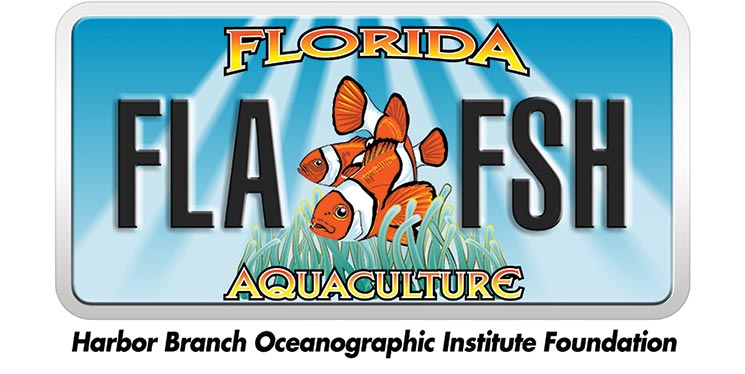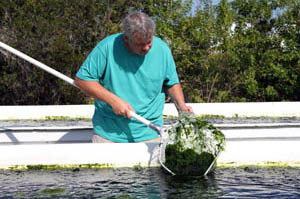Integrated Multi-Trophic Aquaculture


This research is funded by proceeds from the Florida Aquaculture specialty license plate.
Principal Investigator
Paul Wills, Ph.D.
Greater sustainability has been the driver of aquaculture systems development at Harbor Branch, leading to advances that have included minimizing both water use through recirculation techniques and power use via improved efficiency. The newest incarnation of this work is an ambitious system that produces multiple species simultaneously and is designed according to the premise that one species’ trash is another one’s treasure. Although the concept is not new – centuries-old Chinese polyculture practices could produce fish, shrimp, ducks and rice in the same system – the approach is pure innovation.
 The species in this land-based integrated multi-trophic aquaculture (IMTA) system are fish, shrimp, urchins, oysters and macroalgae, also known as seaweed, and each is grown apart from the others. Connecting them all, however, is a network of filters and piping that enables circulation of the water and, in particular, the “waste” products. Each species represents a different trophic (or feeding) level in this food web construct, and although the fish and shrimp receive feed from outside the system, each subsequent species feeds on something the others leave behind.
The species in this land-based integrated multi-trophic aquaculture (IMTA) system are fish, shrimp, urchins, oysters and macroalgae, also known as seaweed, and each is grown apart from the others. Connecting them all, however, is a network of filters and piping that enables circulation of the water and, in particular, the “waste” products. Each species represents a different trophic (or feeding) level in this food web construct, and although the fish and shrimp receive feed from outside the system, each subsequent species feeds on something the others leave behind.
Circulation occurs via a hub-and-spokes concept in which the hub is a computer-controlled filtration and distribution system and the spokes lead to the different culture areas. In the prototype system, all components are indoors with the exception of the macroalgae cultures, which require sunlight. Creation of the system was a collaborative project involving Harbor Branch scientists, engineers and aquaculture technicians.
Now that the general concept has been proven, the focus has turned to achieving the overall goals of land-based IMTA system, which include minimizing waste while maximizing efficiency and productivity.
